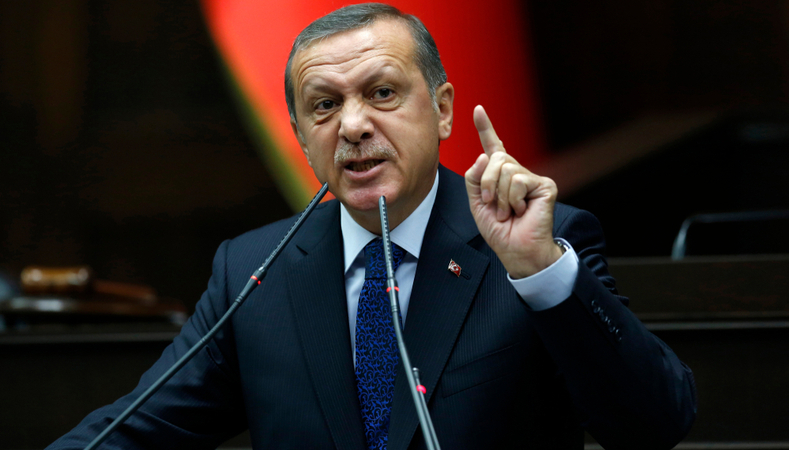Erdogan takes Libya reconstruction, while Europe watches

Turkey has an undeclared but explicit goal, in Libya and the Mediterranean Sea: to oust Italy entirely to its advantage. Ankara’s national interest prevails, of course. But now Rome has also entered the Turkish viewfinder. Imperative, after the words of Mario Draghi to the president (“Erdogan dictator”). The strategic somersault operated on that double front is a fact by Ankara.
Today, a reality even more evident, after the visit of the entire Libyan government (present with 14 ministers) to the capital at the Sultan’s Court. And Recep Tayyip Erdogan, welcoming the large delegation led by the new prime minister of Tripoli, Abdelhamid Dbeibah, set the hinges of the agreement: “We will continue our military support for Libya. The agreement on the Mediterranean borders is confirmed and has brought stability to the region”.
Statements that have alarmed several European countries and many of those in the affected area, which contest the maritime limits imposed by Erdogan in agreement with the Libyan rulers. But a withdrawal of Turkish troops would be unthinkable today, now also supported by the arrival of Syrian mercenaries, while Ankara is also strengthening strategic and economic cooperation with Tripoli.
Italy, France, Israel, Greece, Egypt seems stunned by the formidable hold of the Sultan on the Mediterranean, a fluid territory that is conquering piece by piece. And it is no coincidence that yesterday morning before the Libyan government moved to Turkey in the afternoon, Greek Foreign Minister Nikos Dendias showed up in Tripoli. Greece returns to Libya by reopening its embassy in the capital after six years, and soon a consulate in Benghazi, relaunching a bilateral dialogue that had stopped. The others, all awaiting developments from the Ankara meeting.
The Libyan government moved to Turkey for two days, in addition to the 14 ministers, with 5 deputy premieres, the chief of staff, and a slew of senior officials, each engaged in talks with their counterparts to define in detail the agreements on the individual chapters.Erdogan immediately received the confirmation of the memorandum of understanding signed in November 2019 on the demarcation of maritime borders in the Mediterranean, a key bank for Turkish ambitions on disputed energy resources. Then there are five new cooperation agreements in various economic sectors.
Nourished the diplomatic and military chapter: reopening of the consulate in Benghazi, all-round military support reaffirmed by the Turkish Defense Minister Hulusi Akar and clarified to everyone by Erdogan himself. “Our support for Libya has prevented the fall of Tripoli, averted further massacres, and maintained the ceasefire. We ensure support in the reconstruction of the Libyan military structure. The priority now is to extend the sovereignty of the Government of National Unity to the whole country.”
The agreements to be signed concern the reconstruction of many areas of the country destroyed by war, and in particular the Tripoli airport. All matter in the hands of companies close to Erdogan, already experienced in the pharaonic projects launched twenty years ago at the beginning of his era in power.Dbeibah could not help but thank: “We are grateful to Turkey for the support it has provided so that Libya could reach a lasting ceasefire. We are eager to develop collaboration in the energy field.”
In Italy, the first political reactions show unease with current relations with Turkey. In recent days, many have applauded the words of Draghi, capable of expressing a firm thought in the heads of some European exponents, but never made explicit by anyone with such frankness. The discontent, however, concerns the turn that is taking the situation in Libya and the Mediterranean.




